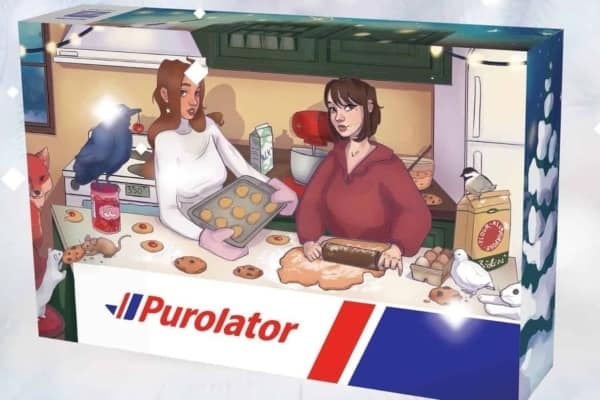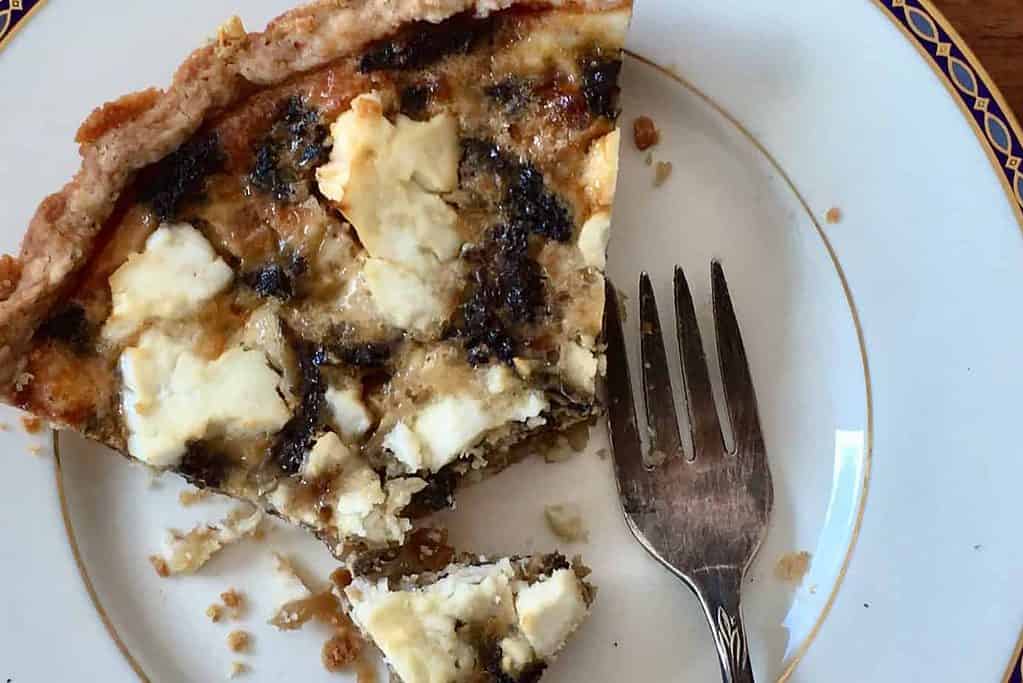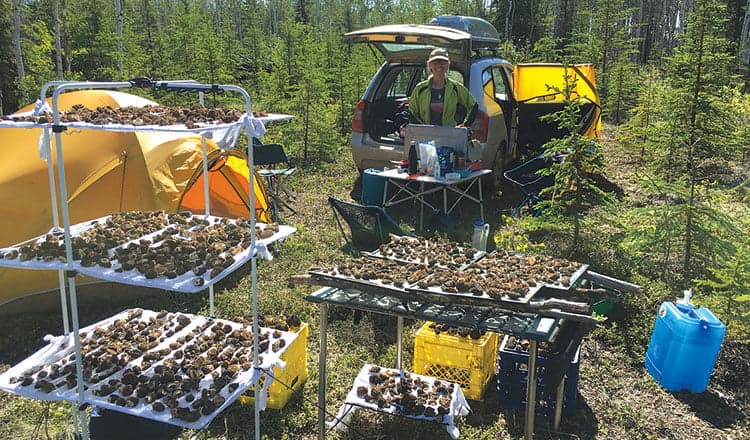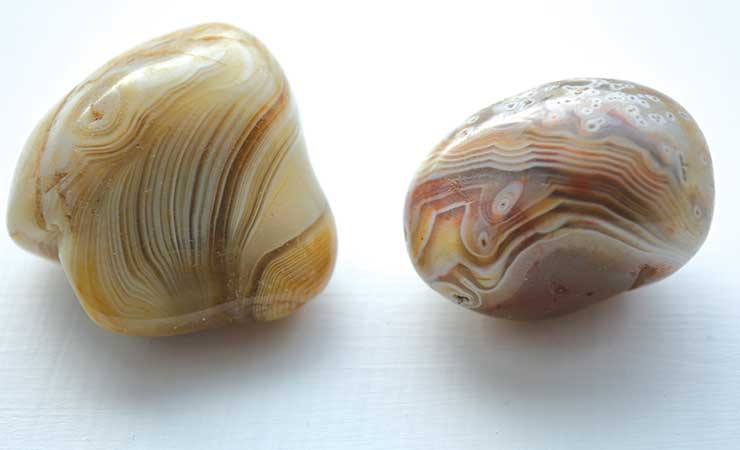A year after the forest fire, anarchy blooms in the Little Salmon/Carmacks bush. Free-growing morel mushrooms attract transient seasonal workers from all over the world; we form camps with no one in charge.
As I plan to pick mushrooms in the Yukon wilderness, this is what locals press me to be wary of — not of the bears I might encounter, but the wild humans. We’d all read the recent news articles about rampant disrespect of both forest and property: the all-night parties, the tactless trespassing, the litter trails.
My picking partner and I arrive on a Wednesday morning late in the season. Most of the excitement has died down because the mushrooms have become harder to find, but there are still pickers who have been here since the start, as well as food stands, boat taxis, and morel buyers.
We pull into a sprawling camp. Tents wind through the trees housing pickers from across Canada and the US, and even the Czech Republic. Many of these people have been living here together since the season began, though they arrived separately. What brings them to this spot is a young man with a powerboat. For $30 a day he will take you across the river to the burn, and pick you up again in time for dinner.
My friend and I use this camp to launch the canoe we brought, feeling a little like competitors trespassing in what has clearly become a bush community. But we receive anything but territorial rebuff, and are welcomed as newcomers, offered picking tips, and invited back for the campfire.
We cross the river and enter the burn, unsure what areas are picked over and what might already be in second growth. We do what a lot of pickers do — pick as a crew, pooling our spoils.
On our first day we’re lucky to find a few good patches, mostly spots previous pickers have missed under fallen trees. It’s a lot less picking and a lot more bushwhacking, but we still make enough for gas plus a little extra, satisfied we’re at least on a work holiday that will pay for itself.
Back at camp we’re ushered into the elaborate communal kitchen, where pickers take turns using the fire and propane stoves to cook their meals. Buckets that were filled with mushrooms during the day are overturned as seats. Beers are passed around. There are shared condiments and water jugs and even a garbage and recycling system, into which I sort the few pieces of litter I came across in the burn. Most of us start drifting toward bed early, worn from the long hours of hiking.
Our second day we’re not so lucky, gathering little more than a full appreciation of how picked-over the burn has become. We also end up getting turned around in the bush, unsure how far we’ve walked from our canoe, and accidentally stumble onto a Little Salmon/Carmacks settlement widely marked with ‘No Trespassing’ signs.
We’re embarrassed, but a waiting boat taxi makes nothing of it, and, because our pockets are empty, graciously offers to float us back to our canoe for free.
We emerge filthy with the soot that coats the burn, and sell the last of our morels to an older couple living in their fifth wheel for the season. They pay us $13 a pound for our scavengings and chat casually about the expensive European dinner plates these fungi are bound for.




